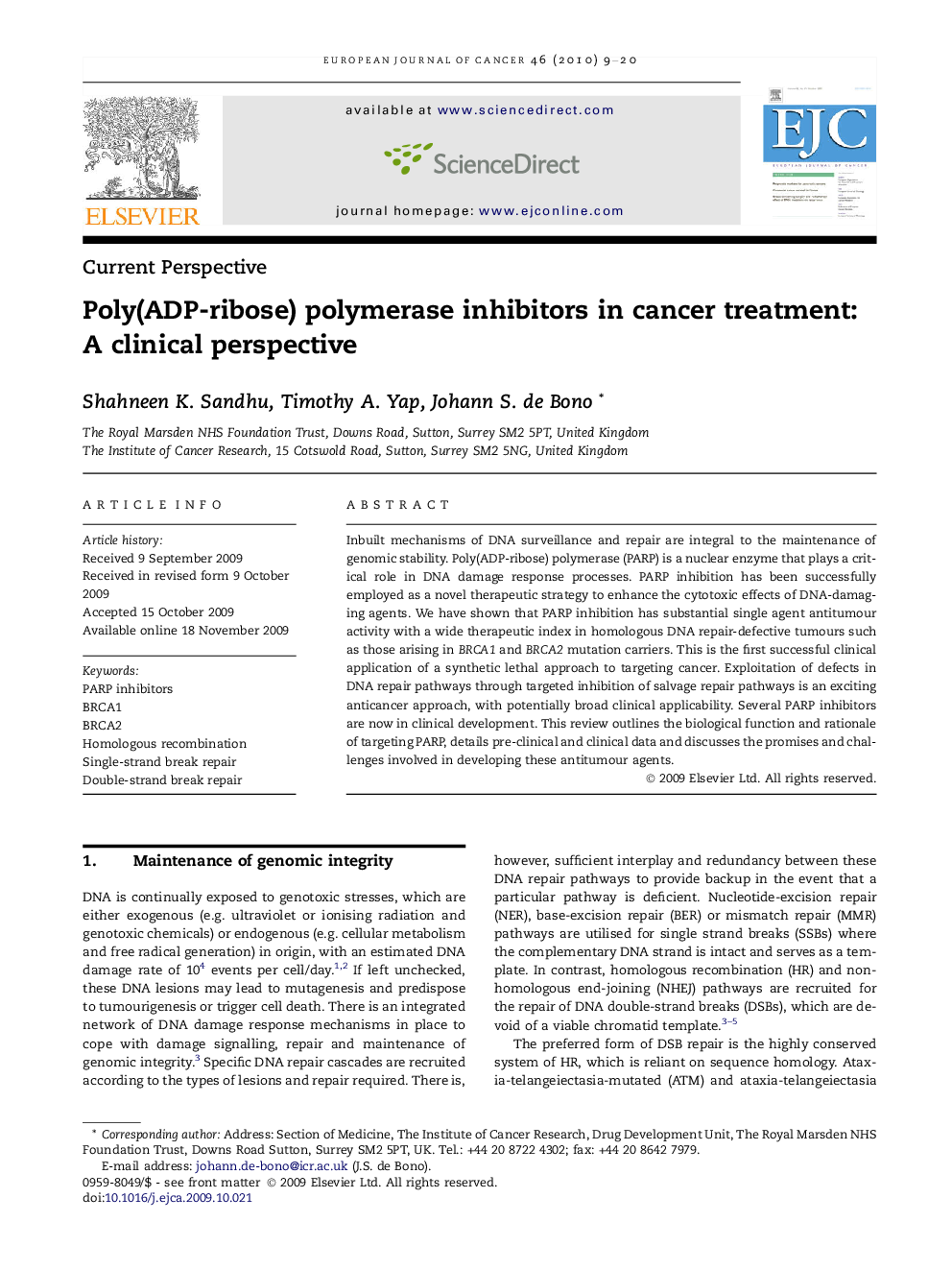| Article ID | Journal | Published Year | Pages | File Type |
|---|---|---|---|---|
| 2125054 | European Journal of Cancer | 2010 | 12 Pages |
Inbuilt mechanisms of DNA surveillance and repair are integral to the maintenance of genomic stability. Poly(ADP-ribose) polymerase (PARP) is a nuclear enzyme that plays a critical role in DNA damage response processes. PARP inhibition has been successfully employed as a novel therapeutic strategy to enhance the cytotoxic effects of DNA-damaging agents. We have shown that PARP inhibition has substantial single agent antitumour activity with a wide therapeutic index in homologous DNA repair-defective tumours such as those arising in BRCA1 and BRCA2 mutation carriers. This is the first successful clinical application of a synthetic lethal approach to targeting cancer. Exploitation of defects in DNA repair pathways through targeted inhibition of salvage repair pathways is an exciting anticancer approach, with potentially broad clinical applicability. Several PARP inhibitors are now in clinical development. This review outlines the biological function and rationale of targeting PARP, details pre-clinical and clinical data and discusses the promises and challenges involved in developing these antitumour agents.
